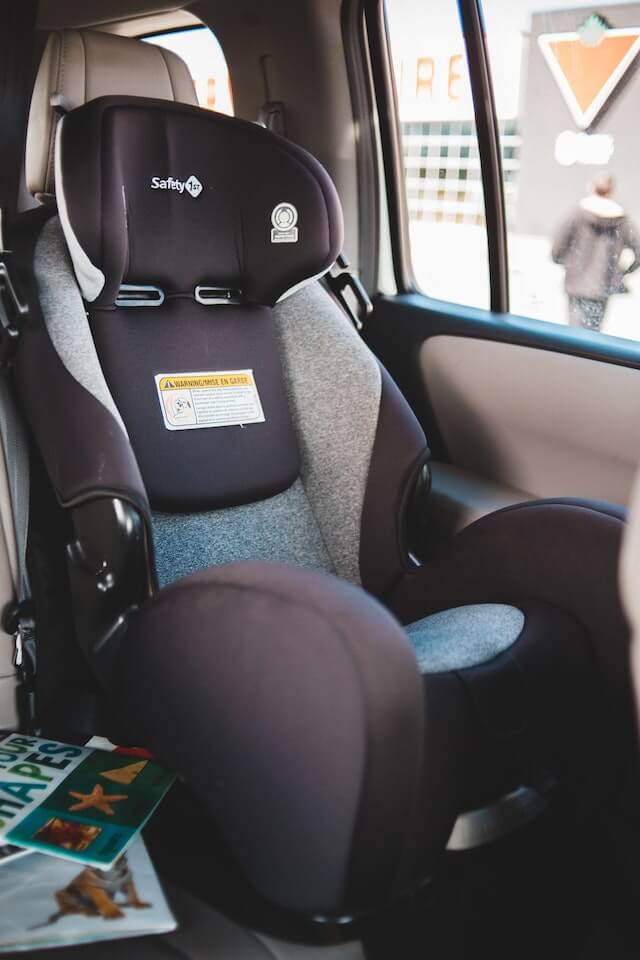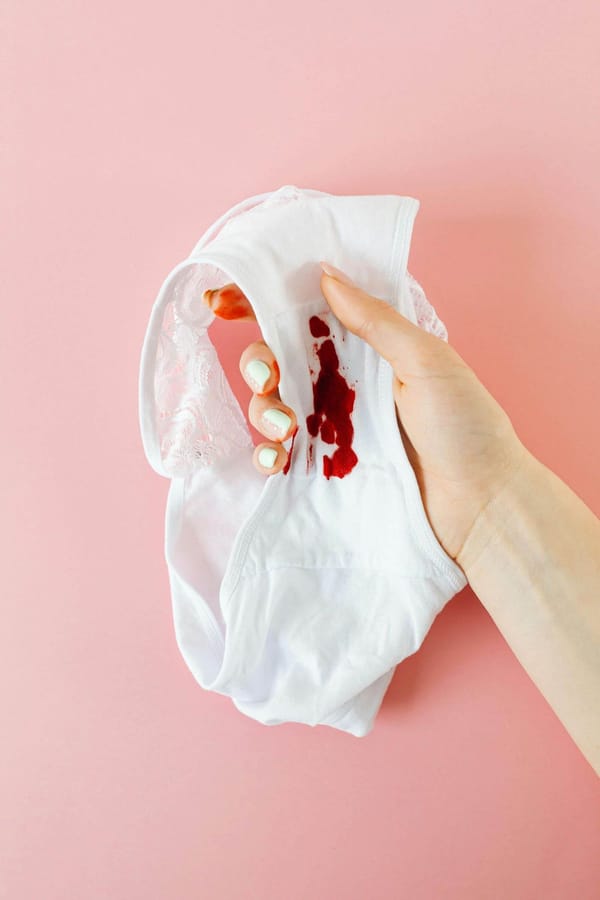Are you ready to welcome your baby? You might probably spend a lot of time planning. You might already purchase all of the baby necessities and decorated the nursery. But don't forget about one of the most important third-trimester tasks: deciding what to pack in your hospital bag for the baby, yourself, and your partner. Are you unsure where to begin? Here's what you should put in your hospital bag to ensure a more comfortable labor, delivery, and recovery.
When to pack the hospital bag?
Having your hospital bag prepared ahead of time can help you feel more secure and prepared for whatever happens in your final weeks of pregnancy. Pack your hospital bag by 36 weeks pregnant, because you could go into labor at any time in the weeks leading up to your due date. Keep your packed bag near the door, or anywhere that anyone can see and easy approach.
But people who are at a higher risk of having a premature birth, on the other hand, should begin packing sooner. This includes anyone who is pregnant with multiples, such as twins or triplets, or who has previously had a preterm birth.
What to pack in a hospital bag?
Everyone may have different needs for their hospital stay. But there are some common essentials that you shouldn’t forget while packing the bag. Our handy lists include everything you need for your baby, your partner, and yourself.
What does the mom need?
First of all, pack the bag for yourself as you are the most important person in this delivery process. Your requirements may differ according to the type of your delivery. If you know you're having a C-Section, your packing list may include some specialized items to help ensure your comfort after surgery, like underwear with a high-waisted band that sits above your incision and a breastfeeding pillow to keep the baby off your incision.
For yourself, you'll probably want to pack:
Important Documents
Bring photo identification (driver's license, passport, or other ID), health insurance information, hospital registration forms, and your medical records (so that your doctors can easily review your medical history). And if you have a birth plan with you, bring extra copies to the hospital so that everyone on your medical team has a copy.
Cloths
There are a few types of clothes that you need before and after delivery.
1) Comfortable loose cloths
Choose a loose, comfortable gown with either no sleeves or short and loose sleeves to wear before the delivery so that your medical team can easily check on you. And put something loose and comfortable to wear during labor that does not restrict movement or make you overheat. If you have a C-Section, you'll want loose clothing that will be comfortable over your incision.
2) Nursing bras or other well-fitting bras and nursing pads
If you decided to breastfeed your baby, the nursing bra will help you to feed your baby while holding your swollen breast up and covering the other part of the breasts. Even if you decided not to breastfeed your baby, a good bra can provide some comfort, and nursing pads can be added to help absorb leaks.
3) Nightgowns
Cotton, loose and soft nightgowns will make your sleep more comfortable. Front opening nightgown will ease the breastfeeding process and will make skin-to-skin contact with your little one.
4) Going home outfit
Select a beautiful but comfortable outfit in six-month maternity sizes, to wear when you take your baby to home as it is a very precious moment in your life.
5) Bathrobe
Even in the hospital, you will need to take a shower as you should always maintain sanitary conditions to protect your baby and yourself from germs. Taking a lightweight bathrobe with you will needful when taking shower.
6) Several pairs of postpartum underwear
Pack a few pairs of comfortable underwear that can be worn over heavy-duty maternity pads if you don’t like to wear mesh underwear given by the hospital. As we mentioned earlier pack some underwear with a high-waisted band that sits above your incision if you have C- Section delivery.
Toiletries
Tissues, a hairbrush, a comb, deodorant, a toothbrush, toothpaste, shampoo, conditioner, a hairdryer, hair clips, and hair ties are all essentials.
Heavy-duty Maternity Pads
It's normal to bleed profusely after giving birth, and maternity pads are softer and more absorbent than regular pads. Initially, you may need to change pads every one to two hours, but the flow will begin to decrease after a few days.
Slippers and Heavy Socks
Take flat and non-skid slippers to wear in the hospital and socks to wear when you feel cold as you can feel cold even during the delivery.
Skin Care Products
If you use any skin care product as a habit, take those items with you. And add lip balm and moisturizer to your cosmetics list as hospitals are very dry.
Cell Phone and Charger or Power Bank
You may don’t forget your phone as it is always with you. However, make sure to pack a USB charger in your hospital bag as well. Aside from the obvious reasons (calling, texting, and updating your social accounts with your exciting news), you may want to download useful information. And if possible, pack a portable power bank in case you can’t find an outlet.
Your Medications
You must pack your regular medications along with other vitamins in case labor is prolonged or complicated, necessitating a hospital stay. Ask your healthcare provider if the hospital will provide all the medications you'll need, or if you should bring your own medications and get the hospital's approval before you arrive. But this should be done at the last minute so you remember to take your medication regularly while still at home.
Healthy Snacks and Drinks
Pack some of your favorite snacks, as you may crave comfort food during your hospital stay. Lollipops and gum are especially effective at combating dry mouth during labor, so include them in your hospital bag. However, check with your medical team to see if you'll be able to eat or drink anything during labor. You're probably hungry after many hours of labor, and you don't want to rely solely on hospital food. Bring your own crackers, fresh or dried fruit, nuts, granola bars, or anything else you think you'll like. If you've had a c-section, you should be able to drink fluids within an hour, but your healthcare provider may advise you to wait eight hours or so before eating anything.
Music, Movies, Books, and Magazines
Pack some items that help you pass the time and relax.
A Notepad or Journal and Pen
You can keep track of your baby's feeding sessions, or keep a birth journal. And you can keep a baby book to record the details of the birthright away.
Soft Pillow
Take a pillow from home as the pillows in hospitals may be uncomfortable. Your own pillow may make you feel relaxed and comfortable even in the hospital.
Nursing Pillow
A specially designed pillow can provide better support than hospital pillows when breastfeeding your baby. And these special pillows will help protect your incision from the baby during feeding.

Eye Masks and Ear Plugs
If your room is bright or noisy, these can make your sleep more comfortable.
Eye Glasses and Contact lenses
If you wear eyeglasses or contact lenses don’t forget to put these things into your hospital bag.
Labor Massage Oil or Lotion
Some expecting mothers find a little massage helps to relax during labor. Put some massage oil or lotion in your hospital bag if you think it will help.
What does the Baby Need?
After you've completed your hospital bag, move on to the necessities for the baby. Your baby won't need much more items like you. The following items should be included in your baby's hospital bag:
Cloths
One of the most important things that your baby needs is clothes.
1) Bodysuits
Hospital policies on what newborns can wear vary, so ask your hospital about what to pack. If they allow bringing some suits for the baby, take a few body suits with you.
2) Sleepsuits
If your hospital policies allow, you can take some comfortable sleepsuits for your baby. These suits will help your baby to have a comfortable sleep.
3) Homecoming outfit
Because you don't know how big or small your baby will be, pack two different outfits in different sizes! Aim for one newborn outfit and one 0-3 months outfit. Remember to bring hats and socks if the weather is appropriate. Sometimes hospitals will provide hats and socks for your baby. But still, if you want to have one, you can buy it in any style you like.
4) Baby blanket
The hospital will most likely provide blankets, but having your own blanket on hand is always a good idea. It can also be used to keep your baby warm while you're driving home. If you take monogrammed baby blankets with you it’ll make the moment, feel extra special even if it is not essential.

Diapers and Wipes
The hospital has all the diapers and wipes you’ll need. But having some newborn-size baby diapers and unscented wipes with you is not a bad idea.
Feeding Bottles and Formula
If you intend to formula feed, bring some of your preferred brands with you, even if the hospital will most likely have samples for you. And pack at least two feeding bottles.
Baby Lotion and Diaper Cream
Ask your pediatrician, is okay to use these on your newborn’s skin, and tell him to suggest a safe brand for your baby’s skin.
Baby Nail File and Nail Clippers or Mittens
Newborns normally have sharp, pointy nails and can scratch themselves on the face. Bring baby nail files or clippers to trim tiny nails, or bring few newborn mittens from home.
Approved Infant Car Seat
An approved car seat should be installed in your car around the same time you pack your baby bag so it's ready for the hospital. You can't drive your baby home unless you have one! Make sure your car seat is rear-facing and that you know how to properly buckle your baby in.

What Does Your Partner need?
If your partner attends the birth and stays in the hospital or birthing center with you remind them to add some things in addition to clothes and toiletries. Because you'll both be spending a night or two in the maternity ward. Here’s what to put in a partner’s hospital bag:
1. Phone and phone charger or power bank
2. Cloths (change of clothes, blanket, change of underwear, pajamas, and homecoming outfit)
3. Toiletries (toothbrush, toothpaste, deodorant, shaving creams, razer)
4. Snacks and beverages
5. Small pillow
6. Camera or video camera to capture the special moment (If hospital permits)
7. Money or a credit card (for parking and vending machines)
8. Medications (If your partner takes some medications on a regular basis or some pain relievers)
9. Something to time pass (books, newspapers, magazines, or tablets with music or movies)
Extra Things
1. An extra bag or two
You can put used things like dirty clothes and used washable diapers in these bags and bring them home with you. Also, you're bound to have more stuff coming out than going in. Such as all the hospital goodies like diapers, blankets, and creams and all the well-wishers' gifts.
What not to pack in your hospital bag?
1. A large sum of money
2. Too much clothing for you or the baby
3. Other valuable things like jewelry
4. Lots of diapers (because the hospital will provide enough for the duration of your stay).







